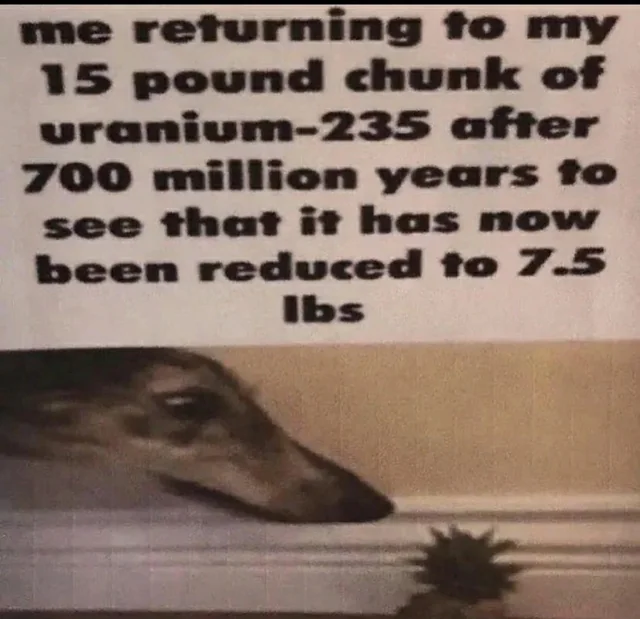this post was submitted on 04 Oct 2023
508 points (100.0% liked)
196
18169 readers
440 users here now
Be sure to follow the rule before you head out.
Rule: You must post before you leave.
Other rules
Behavior rules:
- No bigotry (transphobia, racism, etc…)
- No genocide denial
- No support for authoritarian behaviour (incl. Tankies)
- No namecalling
- Accounts from lemmygrad.ml, threads.net, or hexbear.net are held to higher standards
- Other things seen as cleary bad
Posting rules:
- No AI generated content (DALL-E etc…)
- No advertisements
- No gore / violence
- Mutual aid posts are not allowed
NSFW: NSFW content is permitted but it must be tagged and have content warnings. Anything that doesn't adhere to this will be removed. Content warnings should be added like: [penis], [explicit description of sex]. Non-sexualized breasts of any gender are not considered inappropriate and therefore do not need to be blurred/tagged.
If you have any questions, feel free to contact us on our matrix channel or email.
Other 196's:
founded 2 years ago
MODERATORS
you are viewing a single comment's thread
view the rest of the comments
view the rest of the comments

Matter is not destroyed, during radioactive decay some of the "matter" is released as energy in form of radiation.
I'd like to also point out that nuclear decay doesn't "evaporate" matter. It's reduced to stable state, which might be different isotope of the same element, or element with lower amount of electrons.
Another point that I'd like to point out is that I'm not a physicist, and this is oversimplification, and probably wrong at some points, but that's my rough understanding. I am absolutely sure though, that you'll not get half mass of whatever you had before after one half life cycle.
That's also not quite true. Matter is "destroyed", or rather, converted into other forms of energy, when undergoing energy-positive fission or fusion.
The bonds that keep atoms together have mass due to the mass energy equivalence (binding energy). When those chains break or get rearranged, the amount of mass can change. A uranium nucleus has more mass than the sum of its individual parts. The energy you get out of fission does come from mass.
So when uranium atoms split into two daughter atoms, you do end up with less mass than you started out with.
Matter in general is not a conserved quantity, and we break this symmetry every second in our particle accelerators which both destroy and create new matter particles all the time. What is closer to a conserved quantity is energy (although even that isn't quite true on universe scales).
Yeah, that's more or less what I meant. It's not destroyed as in disappears, it's converted into energy, and... goes away, but that's still something.
I also realize we'd get less mass, some of it was blown away due to radiation after all, but the post implies that 100% disappears after decay.
Original post should probably not be taken too seriously, but this is this time when it was so wrong it made me uncomfortable :)
Fair fair